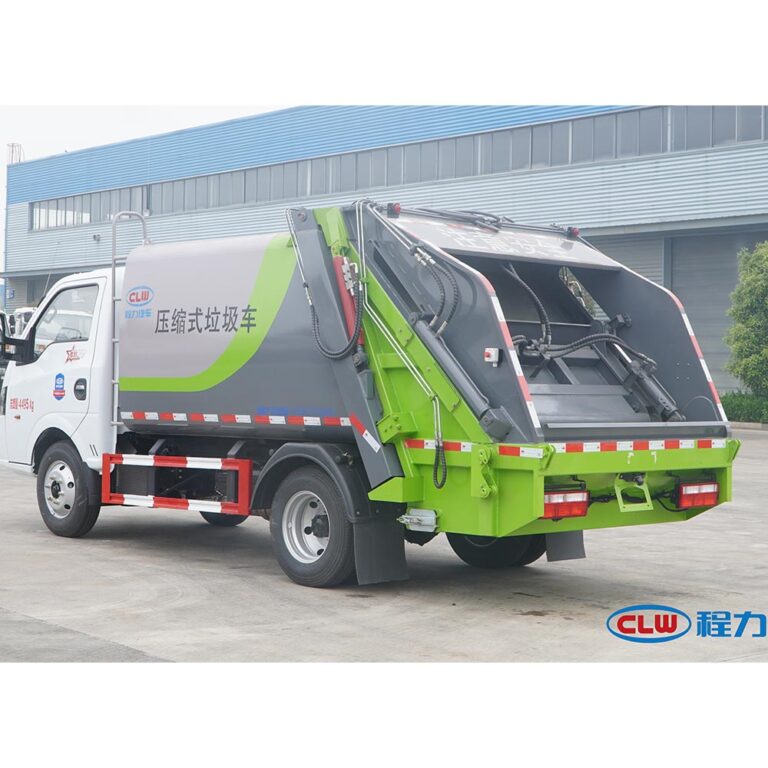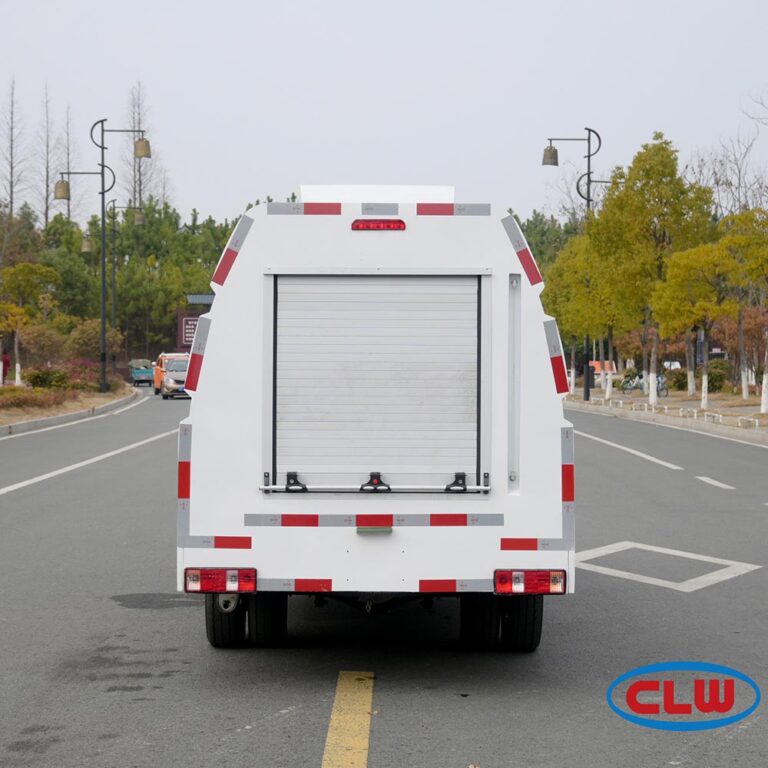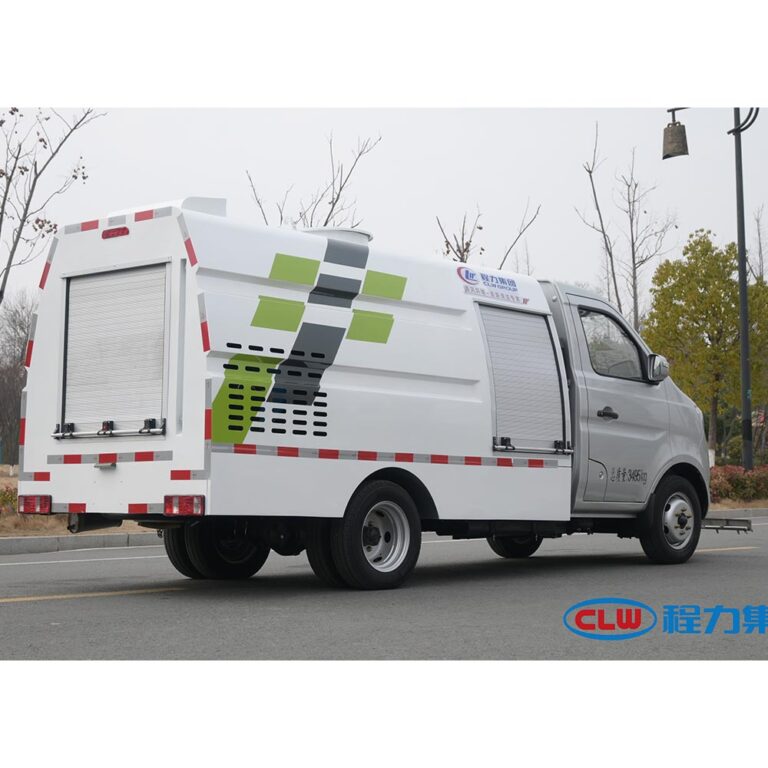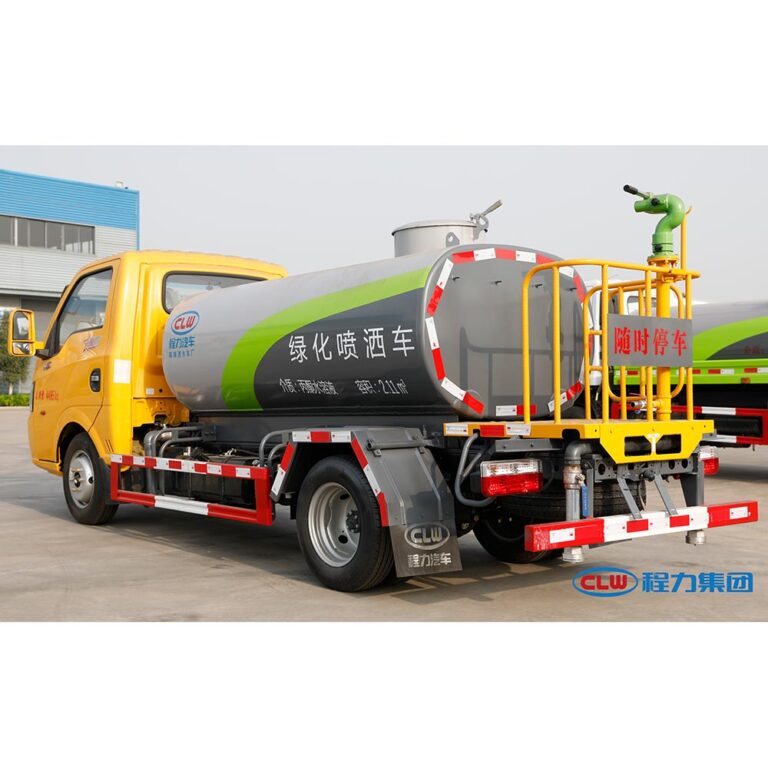-
Parque Industrial del Automóvil de Chengli
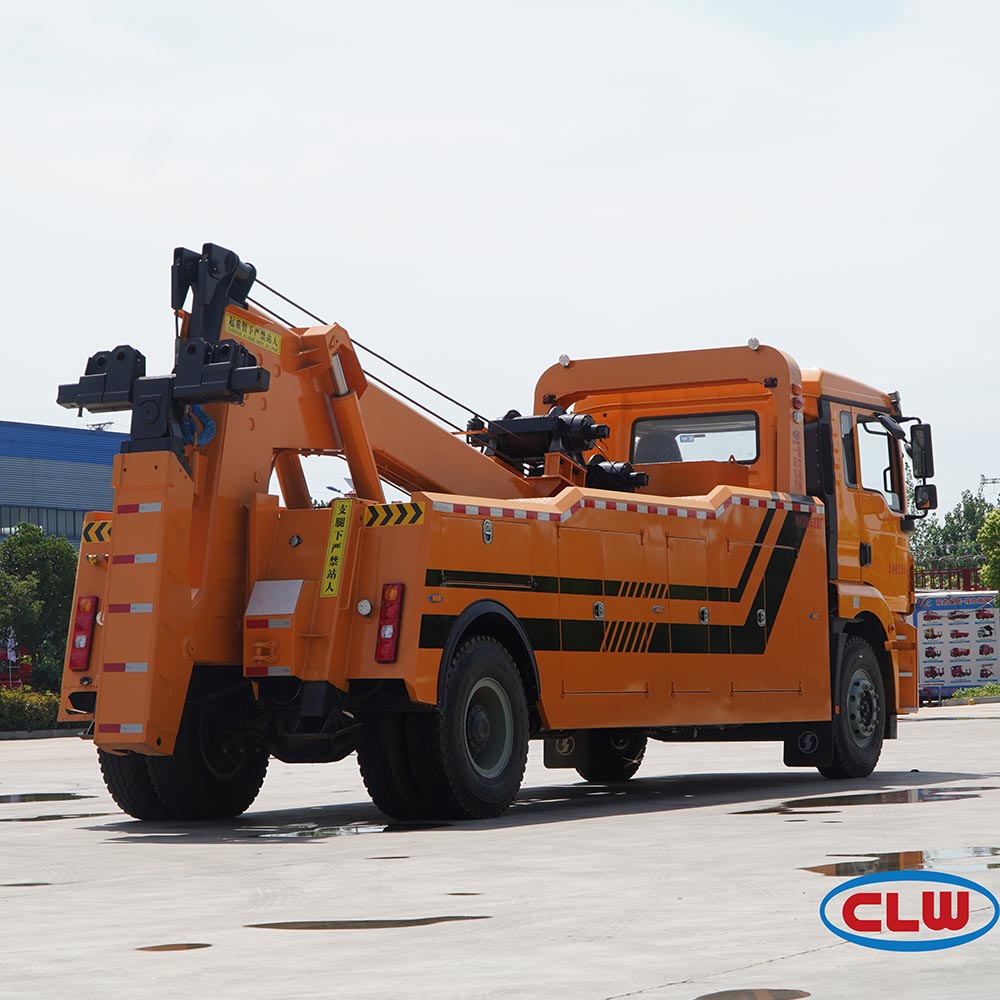
cómo aumentar la capacidad de remolque
Cómo aumentar la capacidad de remolque de su camión: Una guía completa
Este artículo se sumerge en los aspectos cruciales de la comprensión y el aumento potencial de su camión de capacidad de remolque. Si usted es propietario de un taller de reparación de automóviles, gestiona una flota de vehículos o trabaja para un concesionario de automóviles, esta guía le ofrece información valiosa para ayudarle a usted y a sus clientes a tomar decisiones informadas sobre el remolque. Cubriremos todo, desde los conceptos básicos de capacidad de remolque a actualizaciones avanzadas que pueden ayudarle remolque cargas más pesadas de forma segura y eficiente. La lectura de esta guía merece la pena porque desglosa detalles técnicos complejos en un lenguaje fácil de entender, proporciona consejos prácticos y hace hincapié en la importancia de la seguridad y el cumplimiento legal, lo que en última instancia le permite maximizar el potencial de su vehículo y evitar errores costosos.
Índice
1. ¿Qué es la capacidad de remolque y por qué es importante?
Capacidad de remolque es el peso máximo que su vehículo puede remolque. Es un factor crucial determinado por el fabricante, que tiene en cuenta la potencia del motor del vehículo, la transmisión, la resistencia del chasis y el sistema de frenado. Conocer el capacidad de remolque es vital para la seguridad y para evitar daños a su vehículo o al remolque eres remolque.
Para empresas como talleres de reparación de automóviles, concesionarios y empresas de gestión de flotas, entender capacidad de remolque es esencial para asesorar a los clientes y garantizar un uso adecuado de los vehículos. Por ejemplo, un concesionario de automóviles puede recomendar un Camión repostador de chapa Dongfeng Rendimiento diesel 130 CV con un robusto paquete de remolque a un cliente que necesita remolque equipo pesado con regularidad. Exceder la capacidad de remolque puede provocar tensiones en el motor, fallos en la transmisión y una frenada comprometida, lo que se traduce en costosas reparaciones y posibles accidentes.
Además, el capacidad de remolque de su vehículo repercute directamente en lo que puede remolque. En capacidad de remolque es una cifra que hay que tener muy en cuenta, sobre todo cuando se trata de cargas pesadas. En peso de la lengüetaque es la fuerza descendente ejercida por el remolque en el enganchees también un aspecto crucial del peso nominal del vehículo.
2. ¿Cómo puedo determinar mi capacidad de remolque actual?
Determinar el estado actual de su camión capacidad de remolque es el primer paso antes de plantearse cualquier modificación. Puedes encontrar esta información en varios sitios:
- Manual del propietario: El manual del propietario de su vehículo es la fuente más fiable. Contiene especificaciones detalladas, incluidos los capacidad máxima de remolque.
- Página web del fabricante: La mayoría de los fabricantes ofrecen en línea especificaciones detalladas de cada modelo.
- Búsqueda de VIN: Los sitios web permiten introducir el número de identificación del vehículo (VIN) para obtener información detallada sobre el vehículo, como por ejemplo capacidad de remolque.
- Carga útil: Es la cantidad máxima de peso que un vehículo puede transportar con seguridad. Incluye el peso de los pasajeros, la carga y el combustible del vehículo. La dirección capacidad de carga puede afectan al remolque capacidad porque a medida que aumenta la carga útil, la capacidad de remolque disminuye.
- Pegatina en el marco de la puerta del conductor: Algunos vehículos llevan una pegatina que indica el capacidad de remolque.
- Capacidad de carga es otro factor importante a tener en cuenta, ya que afecta a su capacidad de remolque. Superar su capacidad de carga puede afectar a su capacidad para remolque con seguridad.
Es esencial ser preciso a la hora de determinar el capacidad de remolque. Así te aseguras de no sobrecargar el vehículo y arriesgar la seguridad o sufrir daños. Por ejemplo, el capacidad de remolque de su vehículo es un detalle fundamental para los talleres de reparación de automóviles y las empresas de asistencia en carretera. Necesitan saber con precisión cuánto pueden remolcar con seguridad sin causar daños ni comprometer la seguridad. Capacidad de remolque es una información esencial que determina el peso máximo que su vehículo puede soportar con seguridad remolque. Si usted necesidad de remolcar más de la capacidad nominal de su camión, es posible que tenga que considerar mejoras o un camión más grande con un mayor capacidad. Recuerde que peso de remolque incluye todo: el remolquesu carga, e incluso el combustible y los pasajeros de su camión.
3. ¿Puedo aumentar la capacidad de remolque de mi camión?
Técnicamente, sí, puede hacer modificaciones que le permitan remolque un poco más de lo indicado por el fabricante capacidad de remolque. Sin embargo, es crucial entender que estas modificaciones no cambian la política oficial de la UE. capacidad de remolque establecido por el fabricante. Desde el punto de vista legal y del seguro, sigue estando obligado por el contrato original. capacidad de remolque.
Superar el límite establecido capacidad de remolqueIncluso con modificaciones, puede anular la garantía y, en caso de accidente, es posible que su compañía de seguros no cubra los daños. Por tanto, aunque mejore su camioneta rendimiento, es esencial proceder con precaución y dentro de los límites legales y de seguridad. Si quieres aumentar la capacidad de remolque más allá de su calificación actual, considere la posibilidad de camión de una tonelada diseñado para manejar cargas más pesadas. Aumentar su capacidad de remolque puede parecer sencillo, pero implica una cuidadosa consideración de varios factores. Aunque las actualizaciones pueden ayudar a su camión a gestionar un carga pesadano cambian la situación jurídica capacidad de remolque. Consulte siempre a un profesional antes de intentar aumentar la capacidad de remolque de su vehículo.
He aquí algunas modificaciones habituales:
- Mejora del enganche del remolque: Instalación de un enganche de remolque para cargas pesadas puede proporcionar un punto de conexión más fuerte para remolque.
- Mejoras en la suspensión: Mejorar la sistema de suspensión puede mejorar la estabilidad y el manejo mientras remolque.
- Actualizaciones del sistema de frenos: Mejorar la sistema de frenos puede mejorar la potencia de frenado, algo crucial cuando remolque cargas pesadas.
- Enfriador de la transmisión: Añadir un refrigerador de la transmisión puede ayudar a gestionar el calor generado durante remolqueprolongando la vida útil de su transmisión.
Estas mejoras pueden ayuda a tu camión funcionan mejor bajo carga, pero deben ser realizadas por profesionales. Carga útil es la cantidad total de peso del vehículo que un vehículo está diseñado para transportar. En remolqueestás añadiendo peso al vehículo. En carga útil es el peso que puede soportar un camión además de su propio peso. Remolque añade peso al camión y reduce la carga útil. Si usted remolque cerca de su camión remolque máximo tendrá que tener en cuenta la carga útil para no sobrepasar la capacidad máxima. peso nominal del vehículo. Es crucial recordar que sobrepasar la capacidad nominal de su vehículo... capacidad de remolque puede ser peligroso y puede anular la garantía.
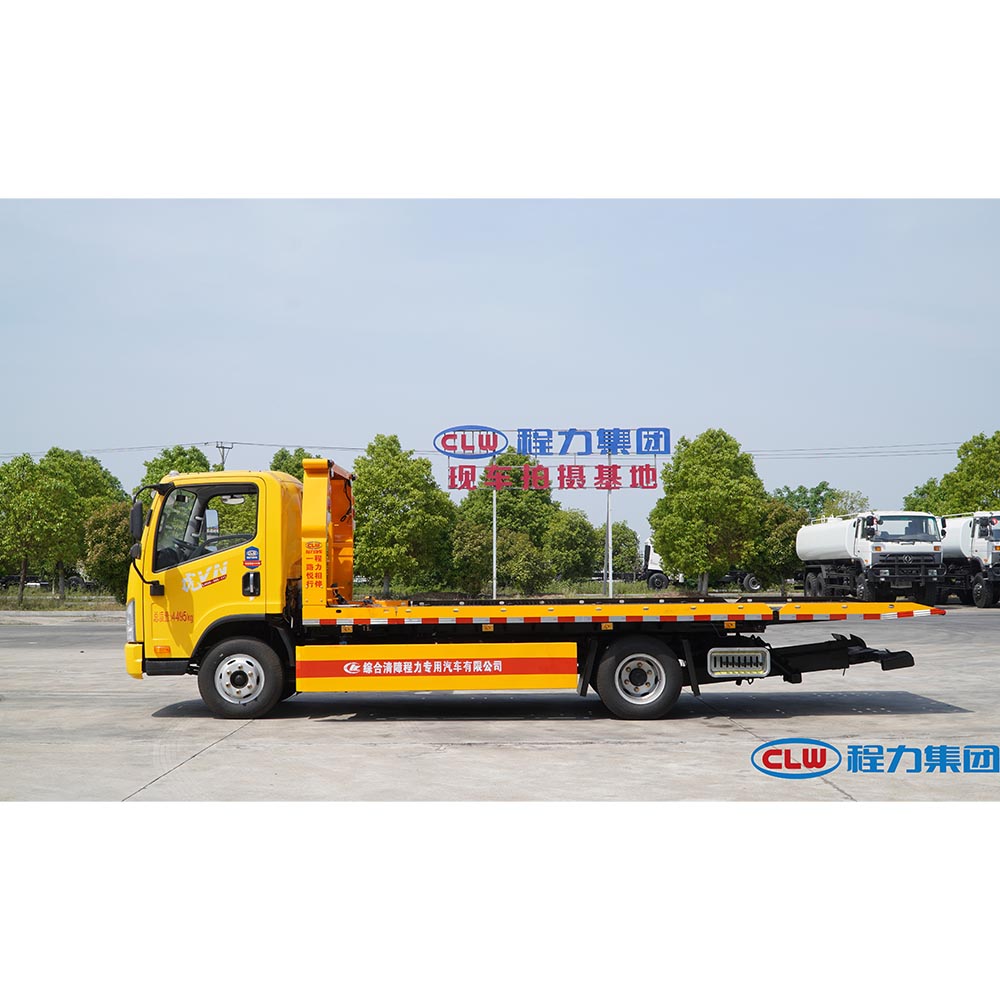
4. ¿Cómo afecta la actualización del sistema de frenos al remolcado?
Actualizar su sistema de frenos es una de las formas más eficaces de mejorar la capacidad de su vehículo para manejar cargas más pesadas con seguridad. Cuando remolque, su frenos trabajar mucho más para detener el peso combinado de su vehículo y el remolque.
A continuación te explicamos cómo actualizar tu frenos puede ayudar:
- Potencia de frenado mejorada: Pastillas y discos de freno de alta resistencia proporcionan una mejor potencia de frenado, reduciendo la distancia necesaria para que su vehículo y remolque a un alto.
- Disipación de calor mejorada: Remolque genera un calor importante en el sistema de frenos. Los componentes mejorados pueden disipar este calor de forma más eficaz, evitando freno desvanecimiento y garantizar un rendimiento constante.
- Controlador de freno: Instalación de un controlador de freno de remolque eléctrico permite a su frenos de remolque para trabajar en sincronía con su vehículo frenos, proporcionando un mejor control y reduciendo la distancia de frenado.
- Rendimiento de frenado se mejora significativamente con un buen sistema de frenos. Esto incluye la posible mejora del pastillas y discos de freno para una mayor durabilidad. También puede implicar la instalación de un controlador de freno para gestionar el frenos de remolqueque le ayuda a detenerse de forma más segura y eficaz.
Actualizar su frenos es esencial para mantener la seguridad cuando remolqueespecialmente a altas velocidades o en pendientes pronunciadas. Esto es especialmente importante para las empresas dedicadas al remolque, como las de asistencia en carretera y las de logística. En necesidad de remolcar con confianza, sabiendo que sus vehículos pueden soportar el estrés adicional. Por ejemplo, la actualización a sistemas de frenos de alto rendimiento puede proporcionar la potencia de frenado necesaria para un grúa de gran tonelaje. Remolque cargas pesadas ejerce una gran presión sobre su frenos. Actualizado pastillas y discos de freno pueden soportar el aumento de calor y proporcionar una mejor potencia de frenado. A freno de remolque controlado por un controlador de freno en su cabina, puede ayudarle a detenerse con mayor seguridad cuando remolque. Esto es especialmente importante para empresas como las de asistencia en carretera, que a menudo remolque vehículos en condiciones difíciles. Sin suficiente potencia de frenado, podría tener un accidentelo que tiene graves implicaciones para la seguridad y la responsabilidad.
5. ¿Qué papel desempeña el enganche en la capacidad de remolque?
En enganche es el vínculo fundamental entre su vehículo y el remolque. No se trata sólo de una barra metálica, sino de un componente cuidadosamente diseñado para soportar cargas específicas. Utilizando el enganche es esencial para una remolque.
Existen diferentes clases de enganchescada uno de ellos diseñado para capacidades de remolque:
- Clase I: Ligero, adecuado para pequeñas remolques y cargas de hasta 2.000 libras.
- Clase II: Uso medio, para cargas de hasta 3.500 libras.
- Clase III: De uso intensivo, comúnmente utilizado para camionetas y todoterrenos, con una capacidad de carga de hasta 2.000 kg. Por ejemplo, un Camión de basura con pinzas Chengli suelen estar equipados con al menos un Enganche de clase III.
- Clase IV: Extrapesado, para cargas de hasta 10.000 libras.
- Clase V: Diseñado para las cargas más pesadas, que superan las 10.000 libras.
Elegir correctamente enganche es crucial. Utilizar una enganche con un peso nominal que tu remolque puede conducir a enganche y provocar un accidente grave. Además, el uso de un enganche de distribución de peso puede ayudar a distribuir la del remolque peso de forma más uniforme, mejorando la estabilidad y la maniobrabilidad. El sitio enganche es el punto de conexión entre su vehículo y el remolquepor lo que debe ser lo suficientemente fuerte como para soportar la carga. Actualizar a un enganche de remolque para cargas pesadasespecialmente un Enganche de clase III o superior, puede mejorar su capacidad de remolque. En enganche es donde su remolque se conecta a su vehículo, por lo que debe ser lo suficientemente fuerte como para soportar la carga. Enganches se clasifican por clase, y cada clase tiene un capacidad de remolque. Utilizar el enganche puede ser peligroso, así que asegúrese de elegir uno que esté clasificado para el peso que planea remolque. Enganches de distribución de peso difundir la peso de la lengüeta entre el camión y el remolquemejorando la estabilidad.
6. ¿Cómo puede mejorar la suspensión mi remolque?
Su vehículo sistema de suspensión desempeña un papel crucial en el mantenimiento de la estabilidad y el control, especialmente cuando remolque. Un sistema bien mantenido y suspensión mejorada puede mejorar significativamente su remolque experiencia.
He aquí cómo suspensión las actualizaciones pueden ayudar:
- Mayor estabilidad: Para trabajos pesados amortiguadores y patas de suspensión pueden reducir el balanceo y el rebote, proporcionando una conducción más suave cuando remolque.
- Manejo mejorado: Mejorado suspensión componentes pueden mejorar la capacidad de respuesta de su vehículo, facilitando la dirección y el control mientras remolque.
- Nivelación de carga: Los airbags o muelles de ayuda pueden ayudar a nivelar el vehículo cuando remolque una carga pesada, evitando el hundimiento y manteniendo una distribución adecuada del peso.
- Mejora de la suspensión puede mejorar mucho la estabilidad de tu vehículo al remolcarlo. Esto puede implicar la adición de airbags, ballestas más fuertes o amortiguadores de alta resistencia. Estas modificaciones ayudan a mantener una conducción nivelada y reducen el balanceo, lo que hace más seguro remolcar. remolcar cargas más pesadas.
Mejora de la suspensión es especialmente beneficioso para los vehículos que remolque cargas pesadas, como las que utilizan las empresas de logística o de alquiler de equipos. Un robusto sistema de suspensión garantiza que el vehículo permanezca estable y controlado, lo que reduce el riesgo de accidentes y mejora el rendimiento general. remolque rendimiento. Es crucial recordar que estas mejoras, aunque beneficiosas, siguen estando sujetas a la normativa original del vehículo. capacidad de remolque. Por ejemplo, mejorar la suspensión en un Camión repostador Furika Depósito de combustible de 8,5 m³, motor de 170 CV puede mejorar su estabilidad pero no aumenta legalmente su capacidad máxima de remolque. Mejora de la suspensión puede ayudar a su camión a soportar el peso extra de un remolque. Esto puede incluir la adición de airbags, ballestas más fuertes, o servicio pesado choques. Estas mejoras pueden proporcionar estabilidad al remolcar y ayudar a mantener tu camión nivelado. Estas mejoras pueden aumentar su capacidad de remolque del camión y proporcionan una conducción más suave y segura cuando remolque.
7. ¿Afecta la relación de ejes a la capacidad de remolque?
Sí, el relación de ejes significativamente afecta al remolque capacidad. El sitio relación de ejes se refiere al número de veces que gira el árbol de transmisión por cada rotación de las ruedas. A mayor relación de ejes (numéricamente) proporciona más par de torsiónque es beneficioso para remolque. Una más baja relación de ejes ofrece mayor eficiencia de combustible pero menos remolque poder.
He aquí una forma sencilla de entenderlo:
- Mayor relación de ejes (por ejemplo, 4,10): Más remolque potencia, ideal para cargas pesadas, pero menor eficiencia de combustible.
- Relación de ejes más baja (por ejemplo, 3,55): Mayor eficiencia de combustible, adecuado para cargas más ligeras, pero menos remolque poder.
Cambiar la relación de ejes puede ser una modificación compleja y costosa, que suele requerir una instalación profesional. Sin embargo, puede ser una inversión rentable para quienes suelen remolque cargas pesadas y necesitan más par de torsión. Si está considerando esta modificación, consulte con un mecánico cualificado para determinar la mejor relación de ejes para su necesidades de remolque.
Por ejemplo, una empresa de logística podría plantearse cambiar el relación de ejes en su flota de Petrolero de aleación de aluminio - 320HP, 26m³ de capacidad camiones para mejorar su capacidad de remolque cargas pesadas en largas distancias. Aunque esta modificación puede mejorar el rendimiento, es esencial recordar que no cambia la homologación legal del vehículo. capacidad de remolque. En relación de ejes afecta a la potencia que el motor puede entregar a las ruedas. A mayor relación de ejes (numéricamente) proporciona más par de torsión para remolque pero puede reducir la eficiencia del combustible. Cambiar su relación de ejes puede resultar caro, por lo que no es una modificación habitual. Su camión eje también influye. Una relación de transmisión más baja en el eje le dará más par de torsión para remolque pero reducirá su economía de combustible.
8. ¿Es necesario un radiador más grande para remolcar cargas más pesadas?
Remolque Las cargas pesadas sobrecargan el motor y generan más calor. Un motor radiadoro un auxiliar refrigerador de la transmisiónpuede ayudar a controlar este calor, evitando el sobrecalentamiento y posibles daños en el motor y la transmisión.
He aquí por qué un radiador o refrigerador de la transmisión puede ser beneficioso:
- Capacidad de refrigeración mejorada: Una mayor radiador proporciona más superficie para la disipación del calor, manteniendo el motor más frío.
- Prevención del sobrecalentamiento: Remolque puede hacer que el motor y la transmisión se sobrecalienten, especialmente en climas cálidos o cuando remolque cuesta arriba. Una mayor radiador o refrigerador de la transmisión puede ayudar a evitarlo.
- Prolongación de la vida útil del motor y la transmisión: Al mantener la temperatura bajo control, se radiador o refrigerador de la transmisión puede ayudar a prolongar la vida útil de su motor y transmisión. Añadir un refrigerador de la transmisión ayuda a gestionar la acumulación de calor durante remolqueque puede prolongar la vida útil de su transmisión.
Instalación de un radiador o refrigerador de la transmisión es una modificación relativamente sencilla que puede mejorar significativamente la capacidad de su vehículo para remolque cargas pesadas sin sobrecalentarse. Esto es especialmente importante para los vehículos utilizados en remolque como las que utilizan las empresas de construcción o de alquiler de equipos. La actualización de su sistema de refrigeración, incluyendo un mayor radiador y un refrigerador de la transmisiónpuede ayudar a gestionar el calor adicional generado cuando remolque. Esto es especialmente importante si tiene previsto remolque en climas cálidos o en largas distancias. Remolque sobrecarga el motor y la transmisión, haciendo que se calienten más. Un mayor radiador puede ayudar a mantener el motor frío, mientras que un refrigerador de la transmisión puede hacer lo mismo con su transmisión. Estas mejoras pueden ser especialmente útiles si tiene previsto remolque cuando hace calor.
9. ¿Cuáles son las mejores formas de mejorar el rendimiento de remolque de mi camioneta?
Mejorar su remolque de camionetas para mejorar el rendimiento de su vehículo es necesario conocer sus limitaciones, realizar las mejoras oportunas y adoptar prácticas seguras. remolque técnicas. Éstas son algunas de las más eficaces formas de mejorar su remolque del camión capacidades:
- Conozca la capacidad de remolque de su camión: Antes de realizar cualquier modificación, conozca el estado actual de su camión. capacidad de remolque y capacidad de carga.
- Mejora tu enganche: Instale un enganche para cargas pesadas que iguale o supere su remolque necesidades.
- Mejore sus frenos: Considere la posibilidad de actualizar a freno de servicio pesado pastillas y rotores, e instale un controlador de freno para frenos de remolque.
- Mejore su suspensión: Para trabajos pesados amortiguadores, airbags o muelles de ayuda pueden mejorar la estabilidad y la maniobrabilidad.
- Considere un enfriador de transmisión: Esto puede ayudar a controlar la acumulación de calor durante remolque.
- Compruebe la relación de ejes: Si con frecuencia remolque cargas pesadas, una relación de ejes puede ser beneficioso.
- Mantenga su vehículo: Un mantenimiento regular, que incluya la comprobación de los niveles de líquidos y la presión de los neumáticos, es crucial para una conducción segura y eficiente. remolque.
- Practique técnicas de remolque seguras: La distribución adecuada del peso, el uso de espejos retrovisores y el mantenimiento de una distancia de seguridad son esenciales para una conducción segura. remolque.
Combinando estas estrategias, puede mejorar significativamente sus del camión rendimiento y seguridad remolcar cargas más pesadas. Esto es especialmente importante para las empresas que dependen de sus vehículos para remolquecomo las casas de subastas de coches y las empresas de gestión de flotas. Necesitan vehículos que puedan remolque varias cargas. Aunque oficialmente no se puede aumentar la capacidad de remolque más allá de la clasificación del fabricante, puede realizar varias mejoras para ayuda a tu camión manipular cargas de forma más segura y eficaz. Estos son algunos de los formas de aumentar su del camión capacidad para soportar cargas más pesadas. Aunque estas mejoras pueden mejore el rendimiento de su camión capacidad de remolqueno cambian su oficial capacidad de remolque.
10. ¿Cuáles son los riesgos de sobrepasar la capacidad de remolque?
Superar el límite de capacidad de remolque es arriesgado y puede tener graves consecuencias. Es esencial comprender estos riesgos antes de intentar remolque más de lo que su vehículo está diseñado para soportar.
He aquí algunos de los riesgos potenciales:
- Seguridad: Los vehículos sobrecargados son más difíciles de controlar, especialmente al frenar o girar. Esto aumenta el riesgo de accidentes.
- Daños al vehículo: Superar capacidad de remolque puede forzar su motor, transmisión, frenosy suspensiónEllo puede provocar un desgaste prematuro o incluso una avería catastrófica.
- Cuestiones jurídicas: Remolque más que el nominal de su vehículo capacidad de remolque puede ser ilegal y dar lugar a multas u otras sanciones.
- Reclamaciones de seguros: Si se ve involucrado en un accidente mientras excede su capacidad de remolqueSu compañía de seguros puede rechazar su solicitud.
- Garantía: Modificaciones introducidas en aumentar la capacidad de remolque puede anular la garantía de su vehículo.
Es fundamental dar prioridad a la seguridad y respetar las instrucciones del fabricante. capacidad de remolque directrices. Si necesita sistemáticamente remolque cargas más pesadas, considere la posibilidad de invertir en un vehículo con una mayor capacidad de remolque en lugar de llevar su vehículo actual más allá de sus límites.
Para las empresas, los riesgos de sobrepasar capacidad de remolque son aún mayores. Podrían enfrentarse a problemas de responsabilidad, daños a su reputación y pérdidas económicas si se produce un accidente debido a la sobrecarga. Por tanto, es esencial que las empresas den prioridad a la seguridad y se aseguren de que sus vehículos se utilizan dentro de los límites especificados. remolque límites. También es importante tener en cuenta que incluso si usted hace estas mejoras, no debe exceder de su vehículo de capacidad máxima de remolque. Hacerlo puede ser peligroso y puede anular la garantía. Aunque estas actualizaciones pueden aumenta tu capacidad de remolquees importante recordar que sobrepasar los límites de capacidad de remolque puede ser peligroso y anular la garantía. Si regularmente necesidad de remolcar cargas pesadas, puede merecer la pena invertir en un camión que puede manejar el peso. Si necesita remolcar cualquier cosa más pesado, deberías conseguir un camión más grande que está clasificado para eso tipo de peso.
Preguntas frecuentes
¿Cuál es la diferencia entre capacidad de remolque y capacidad de carga útil?
Capacidad de remolque es el peso máximo que un vehículo puede remolquemientras que capacidad de carga es el peso máximo que puede transportar un vehículo, incluidos pasajeros y carga. Ambos son importantes para un funcionamiento seguro y eficiente.
¿Puedo aumentar la capacidad de remolque de mi vehículo simplemente añadiendo un enganche mayor?
Mientras que un enganche para cargas pesadas es esencial para remolque cargas más pesadas, no aumenta la carga oficial de su vehículo. capacidad de remolque. Otros factores, como la potencia del motor, la transmisión y la frenosdetermine también capacidad de remolque.
¿Qué es un enganche de distribución de peso y si lo necesito?
A enganche de distribución de peso ayuda a distribuir el peso del remolque más uniformemente entre los remolque y el vehículo tractor. Esto puede mejorar la estabilidad y la maniobrabilidad, especialmente cuando remolque cargas pesadas. La necesidad de uno depende del peso de su remolque y el de su vehículo capacidad de remolque.
¿Con qué frecuencia debo inspeccionar mi vehículo si remolco con regularidad?
Si usted remolque regularmente, es una buena idea hacer inspeccionar su vehículo con más frecuencia que los intervalos de servicio recomendados por el fabricante. Preste especial atención a los frenos, suspensión, enganchey neumáticos.
¿Cuáles son los signos de que puedo estar superando la capacidad de remolque de mi vehículo?
Señales de que puede estar sobrepasando su capacidad de remolque dificultad para acelerar, frenado deficiente, balanceo excesivo o rebote del vehículo. remolquey el sobrecalentamiento del motor o de la transmisión.
¿Puedo arrastrar un remolque de viaje que supere ligeramente la capacidad de remolque de mi camión si conduzco despacio?
No, superando su capacidad de remolque del camión es peligroso independientemente de su velocidad. El capacidad de remolque tiene en cuenta factores como la capacidad de frenado y la estabilidad del vehículo, que se ven comprometidos incluso a baja velocidad. Remolque a remolque de viaje que supere su capacidad de remolque del camión es peligroso y puede dañar su vehículo. Límites de remolque se establecen por una razón, y sobrepasarlas puede comprometer su seguridad y la de los demás.
Conclusión
- Comprender capacidad de remolque es crucial para una remolque.
- Puede realizar modificaciones para mejorar el rendimiento de su vehículo. remolque rendimiento, pero éstas no cambian el capacidad de remolque.
- Actualización de componentes como el frenos, enganchey suspensión puede mejorar la estabilidad y el manejo cuando remolque.
- En relación de ejes y el sistema de refrigeración también influyen remolque capacidad.
- Superar el límite de capacidad de remolque es arriesgado y puede tener graves consecuencias, como riesgos para la seguridad, daños al vehículo, problemas legales y denegación de reclamaciones al seguro.
- Dé prioridad a la seguridad y considere la posibilidad de invertir en un vehículo con mayor capacidad de remolque si necesita sistemáticamente remolque cargas más pesadas.
- Mantenimiento regular y práctica segura remolque son esenciales para maximizar el rendimiento de su vehículo. remolque rendimiento y garantizar una remolque experiencia.
- Para necesidades de remolque especializadas, explore nuestra gama de vehículos, como el Camión de transporte de aceite comestible o el robusto Camión de basura de compresión de 5m³.
- Recuerde que el capacidad de remolque no es sólo un número; es una directriz de seguridad crítica. Dé siempre prioridad a la seguridad cuando remolque.
Recuerde, como planta de fabricación de camiones de auxilio y grúas, entendemos los matices de remolque y podemos ofrecerle asesoramiento experto para elegir el vehículo adecuado a sus necesidades específicas. Póngase en contacto con nosotros hoy mismo para obtener más información sobre nuestros productos y cómo podemos ayudarle. remolque de forma segura y eficaz.


